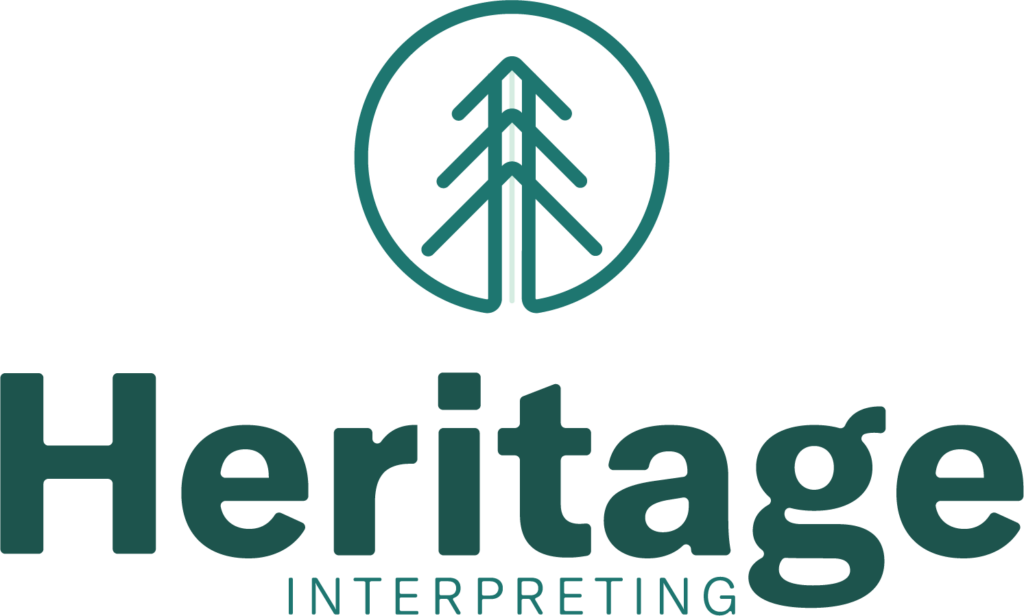Understanding the Importance of Team Interpreting in Sign Language Interpreting
If you’re a company that hires interpreting services, you may have come across situations where a team of interpreters is required instead of just one. This might initially seem unclear, but there’s a good reason behind it. In this article, we’ll dive into team interpreting, why it’s necessary, and how it benefits the Deaf community. Heritage Interpreting aims to enhance the interpreting experience for all by prioritizing people, building authentic relationships, and exceeding expectations. We provide on-site and virtual sign language and spoken language interpreters, as well as captioning and translation services. Let’s explore the ins and outs of team interpreting in American Sign Language (ASL) Interpreting.
What is Team Interpreting, and When is it Needed?
Team interpreting involves two or more interpreters working together to provide accurate and seamless communication between Deaf and hearing individuals. Several factors determine whether a team of interpreters is required, with the length and complexity of the assignment being the most common. By employing a team of interpreters when needed, we empower the Deaf community with reliable access to well-qualified, trustworthy interpreters, ultimately ensuring a more inclusive and accessible communication experience. Here are a few scenarios that may call for team interpreting:
- Length of the assignment: Generally, assignments over an hour require a team of interpreters, while shorter ones may only need one interpreter. This is because interpreting is mentally and physically demanding, and fatigue can occur after 30 minutes of continuous work.
- The complexity of the assignment: In some cases, even assignments lasting an hour or less may require a team of interpreters. This can be due to the complexity of the subject matter, the interactive nature of the setting, or the number of Deaf participants involved.
- Needs of the consumers: Some Deaf individuals may require additional services or supports that necessitate the presence of another interpreter. For example, a Deaf interpreter might be needed to team up with a hearing interpreter for a Deaf patient who has traveled from another country.
The Benefits of Team Interpreting
Now that we know when a team of interpreters might be needed let’s look at the benefits of this approach:
- Enhanced communication access: An additional interpreter ensures all participants can fully engage in the conversation. Both interpreters actively support each other and the participants, leading to a higher quality of service.
- Reduced cognitive fatigue: As mentioned earlier, interpreting is a mentally demanding task. A team of interpreters can help prevent mental fatigue and maintain accuracy throughout the assignment.
- Prevention of physical strain and fostering growth: Sign language interpreters risk developing repetitive strain injuries (RSI) due to the physical nature of their work. By working in teams, interpreters can take breaks and reduce their risk of injury. Additionally, team interpreting offers an opportunity for interpreters to learn from one another, fostering a respectful and communicative environment that cultivates growth and success.
Why Choose Heritage Interpreting for Your Team Interpreting Needs?
At Heritage Interpreting, we understand the importance of providing top-notch interpreting services that cater to the unique needs of each assignment. Here’s what sets us apart:
- Authentic relationships: We build strong connections with our clients, interpreters, and the communities we serve, aiming to exceed expectations by delivering exceptional customer service and prioritizing people at the core of our services.
- Comprehensive services: We offer sign language and spoken language interpreters, both on-site and virtually. Additionally, we provide captioning and translation services to ensure that all your communication needs are met.
- Tailored solutions: We take the time to understand the specific requirements of each assignment and provide the most appropriate team of interpreters to ensure seamless communication.
- Commitment to accessibility: We’re dedicated to promoting access and accommodation for the Deaf community by providing high-quality interpreting services.
Conclusion
Team interpreting is crucial in ensuring effective communication and accessibility for Deaf individuals. By understanding the importance of this practice, companies can make informed decisions when hiring interpreting services. Our vision is to become a respected industry leader known for redefining the provision of interpreting services through our focus on people and authentic relationships. By choosing Heritage Interpreting, you can rest assured that you’re partnering with a company that understands the intricacies of team interpreting and is dedicated to providing exceptional interpreting services that meet your specific needs.
In conclusion, team interpreting is essential to the sign language profession. It helps maintain the quality of service, reduce interpreter fatigue, and promote accessibility for the Deaf community. By choosing Heritage Interpreting, you’re partnering with a company that understands the intricacies of team interpreting and is dedicated to providing exceptional services tailored to your needs. So, the next time you require interpreting services, remember that team interpreting is an added benefit and an essential component of ensuring a successful and inclusive communication experience.


